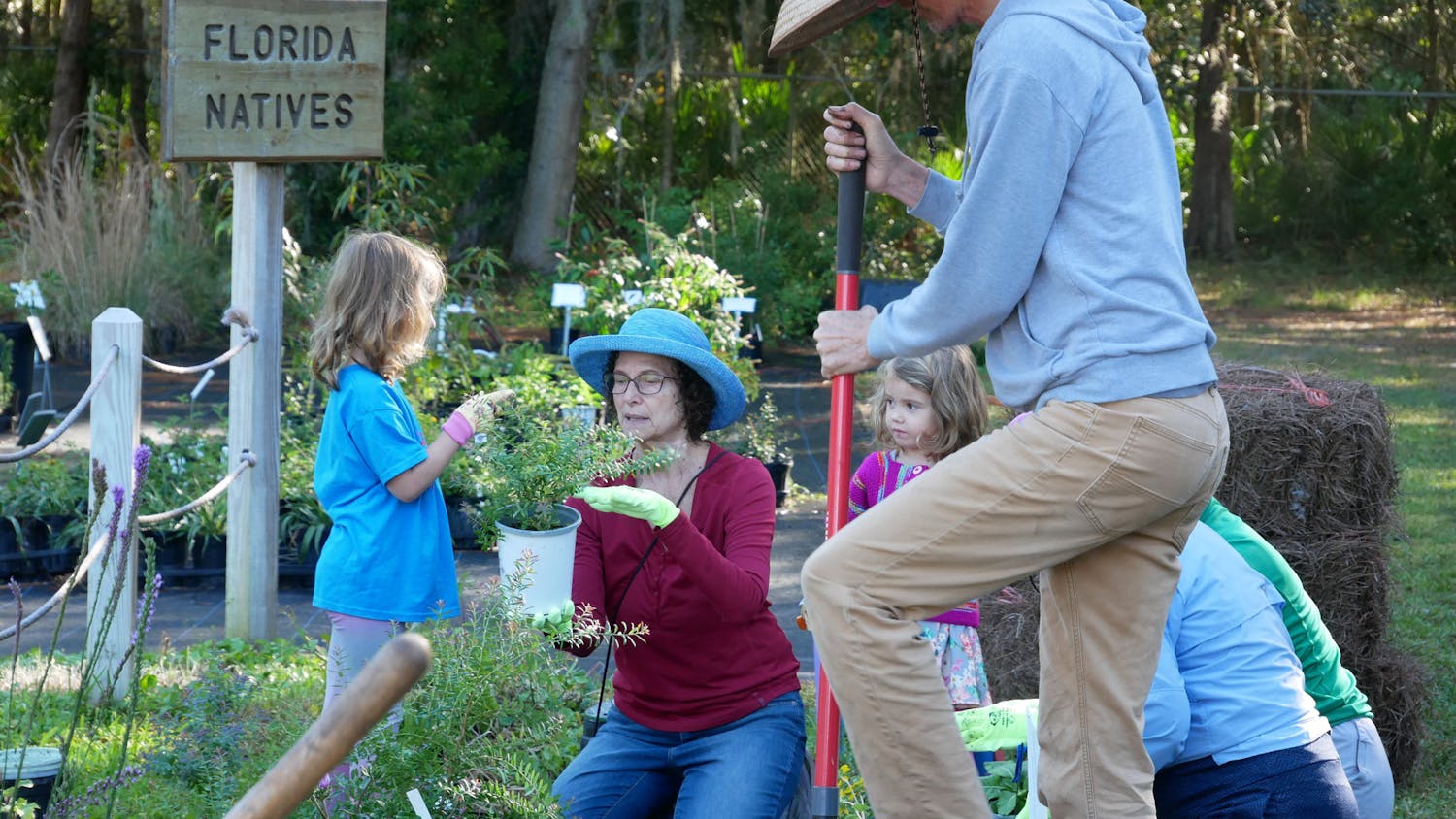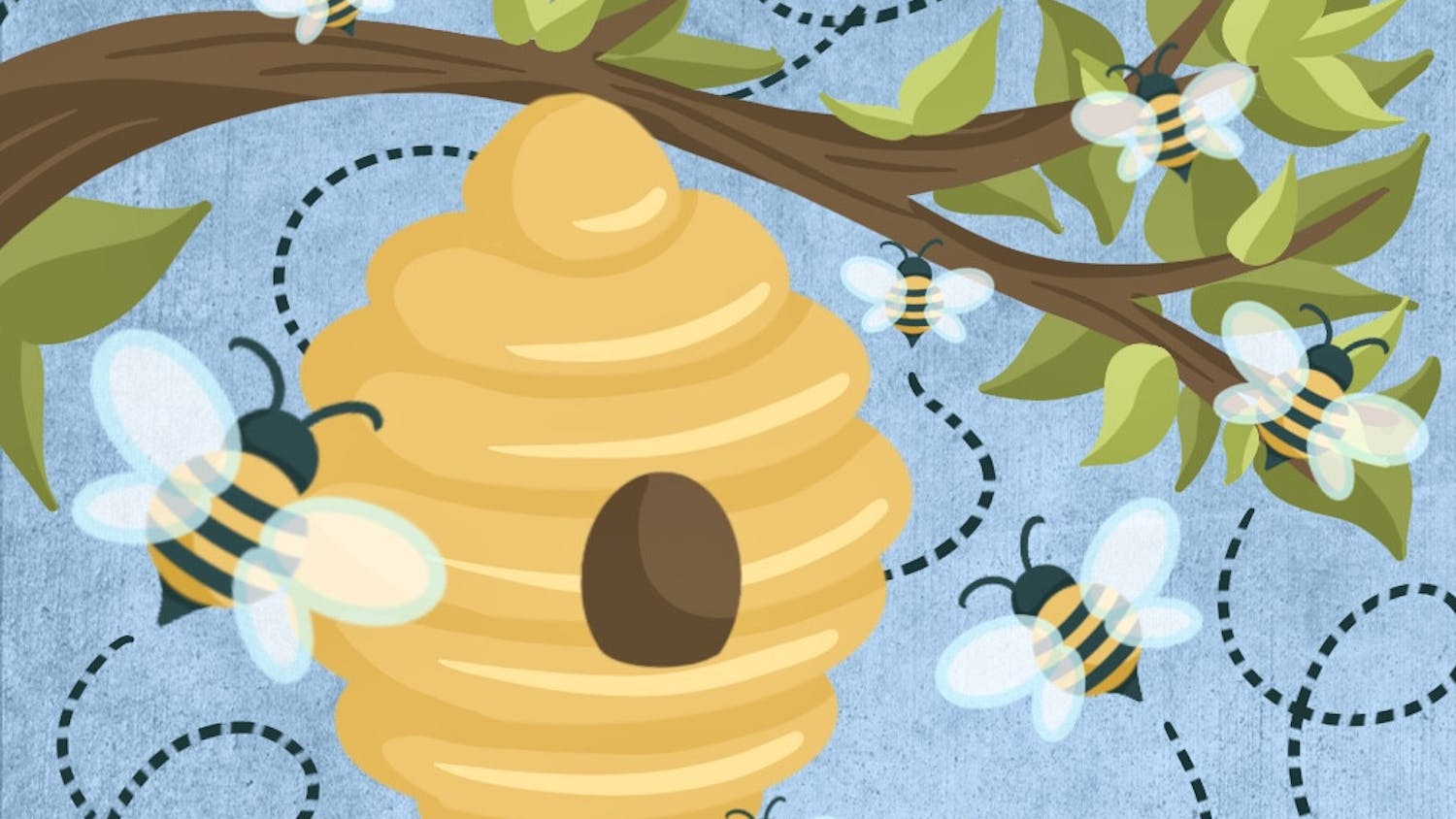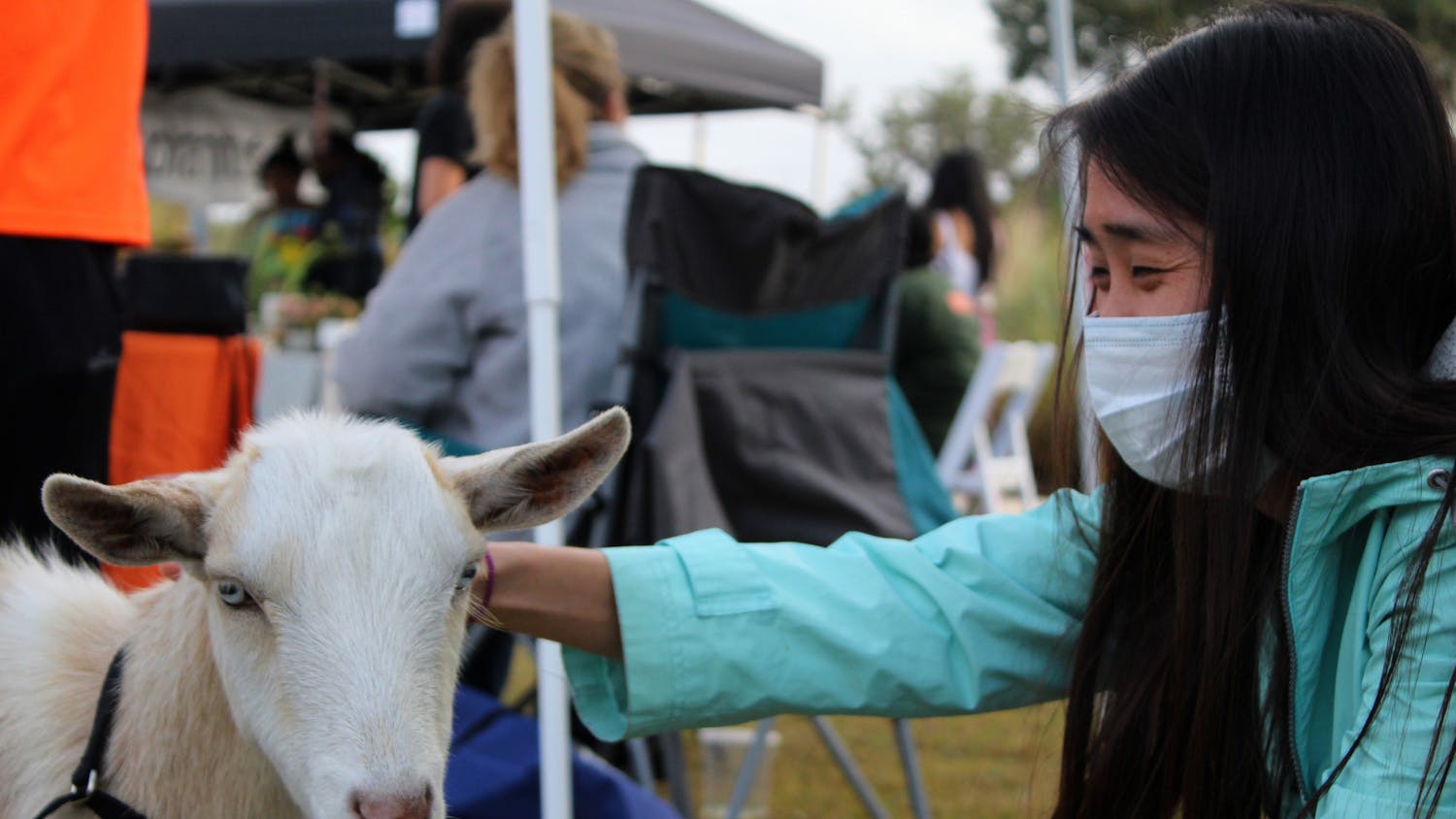Leading up to this year’s Bee College, UF experts shared the importance of protecting bees and the food they pollinate.
From March 4 to March 5, Florida’s beekeepers will meet experts and enthusiasts at UF’s Whitney Marine Lab in St. Augustine, Florida.
William Kern, an associate professor at UF’s Institute of Food and Agricultural Sciences, said about one-third of America’s food supply, including blueberries and potatoes, depends on insect pollinators.
Kern said he will educate attendees at the Bee College about bees’ fragile ecosystem.
“Homeowners apply more pesticides than all the farmers combined,” Kern said. “I’m not sure that they’re aware of what it’s going to affect — beside the pest they’re trying to control.”
Josh Campbell, a postdoctoral research associate at UF’s Honey Bee Research and Extension Laboratory, said a lower bee population results in higher food prices.
The honey bee is one of 316 bee species in Florida, he said, and the rest are different species of native bees, 70 percent of which live in underground tunnels.
Honey-bee colonies are used for pollination because they are easy to track and transport, Campbell said, but individual native bees are more effective pollinators.
Plowing or tilling the ground might be the best solution to protecting native bees’ tunnels, Campbell said.
He also recommended limiting pesticide use and not spraying the chemicals on windy days.
“Simple things you can do, even within your own front yard, can make a difference,” he said.





